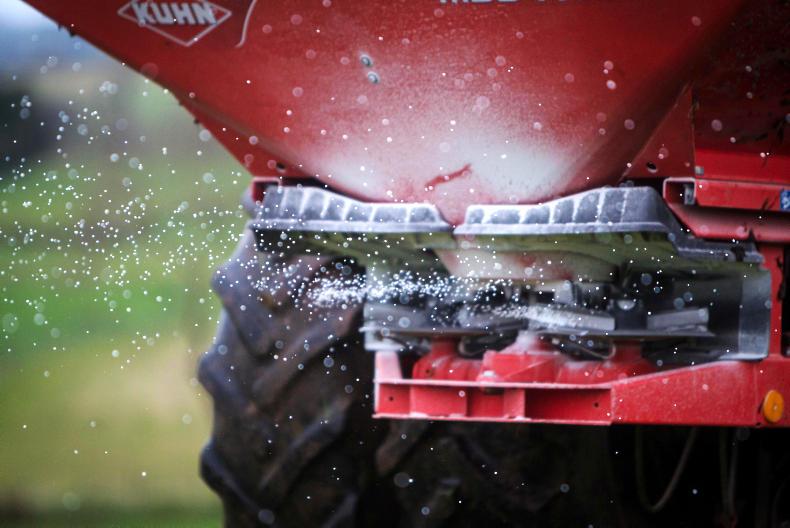Cashflow pressure on farms across NI has left fertiliser stocks slow to move, and merchants offering good deals for those able to buy a load and/or pay close to delivery.
Prices for CAN are at a level not seen in the month of February for over a decade, with quotes ranging from £190/t to £195/t this week, down from £235/t to £240/t on the same week last year.
However, some merchants and farmers have confirmed prices as low as £185/t when discounts are applied for payment on delivery, or within 30 days of purchase, as well as on bulk orders.
Urea is currently trading as low as £270/t, down from by £60/t on the same month last year, although there have been some merchants quoting £280/t this week with protected urea costing £30/t more.
Price trends
Back in 2018, CAN cost £225/t, with Urea costing £300/t, while five years ago CAN was trading around the £245/t mark and was as high as £280/t back in 2012/2013.
However, agri-merchants indicate that there are signs that sales are slowly gaining momentum since the outset of this month, with the opening of the spreading period.
They are advising clients to avail of lower fertiliser prices now as new price listings will most likely come with price increases.
Compounds
The prices for compound products are also down on 2019, but generally to a lesser extent than straight nitrogen.
Products such as 25-5-5 are trading from £252/t to £258/t, with 27-4-4 plus sulphur moving at prices ranging from £248/t to £253/t, down by as much as £35/t on the year.
Other products such as 20-10-10 are priced closer to £260/t, compared to £298/t this time last year, with products such as 24-0-13 and 22-0-11 trading around the £255/t mark. 24-6-12 is moving around £275/t, down from £325/t last spring.
DAP
DAP (18-46-0) is priced around £360/t, with products such as 16-16-16 trading around £295/t to £300/t.
Farmers should note that if they are spreading P-containing fertiliser, they must have soil analysis done to show there is a crop need.
